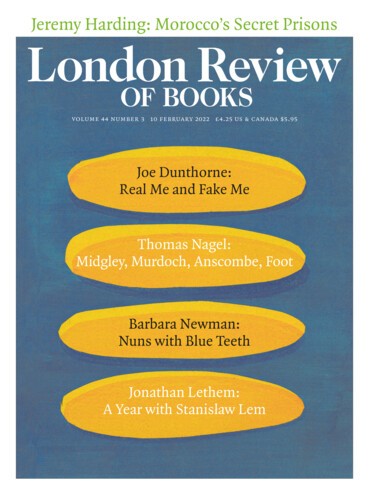The results of REF2021, the latest iteration of the Research Excellence Framework assessing the quality of research at UK universities, were published last week. My institution, UCL, is boasting that it came second, above Cambridge and beaten only by Oxford. Cambridge is boasting that it came third, but behind Imperial and the Institute of Cancer Research; institutions that shouldn’t quite count, it implies, since neither covers the full range of academic endeavour. Imperial, however, is clear that it has been shown to be the UK’s top university. The same claim is made by Oxford.
Paul Taylor
Paul Taylor is professor of health informatics at UCL.
Excess Deaths
10 February 2022
Bad Judgment: How many people died?
Paul Taylor, 10 February 2022
Estimated weekly excess deaths in England and Wales in 2021.
One of the tactics used over the past few weeks by Boris Johnson at Prime Minister’s Questions, and by loyal MPs and dutiful ministers touring broadcasting studios, has been to claim that his successful management of the pandemic is more worthy of the public’s attention than trivial issues of garden parties or...
Researchers led by a team from Emory University recently announced that they had used artificial intelligence to predict patients’ self-reported racial identity from medical images. It is an unexpected, unsettling result.
As chest X-rays of Covid-19 patients began to be published in radiology journals, AI researchers put together an online database of the images and started experimenting with algorithms that could distinguish between them and other X-rays. Early results were astonishingly successful, but disappointment soon followed. The algorithms were responding not to signs of the disease, but to minor technical differences between the two sets of images, which were sourced from different hospitals: such things as the way the images were labelled, or how the patient was positioned in the scanner. It’s a common problem in AI. We often refer to ‘deep’ machine learning because we think of the calculations as being organised in layers and we now use many more layers than we used to, but what is learned is nevertheless superficial.
Read anywhere with the London Review of Books app, available now from the App Store for Apple devices, Google Play for Android devices and Amazon for your Kindle Fire.
Sign up to our newsletter
For highlights from the latest issue, our archive and the blog, as well as news, events and exclusive promotions.


